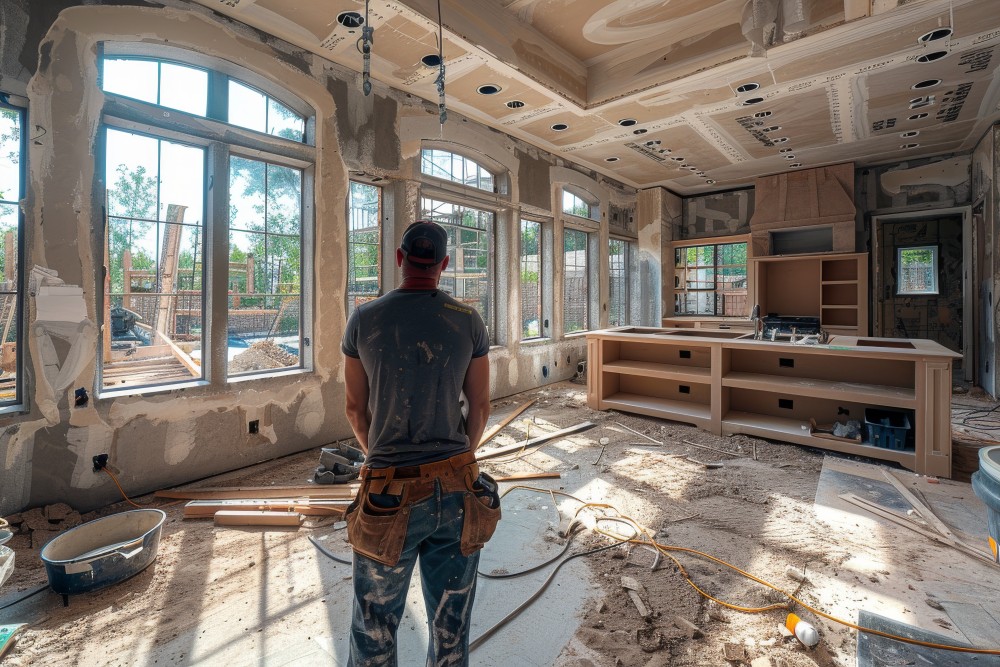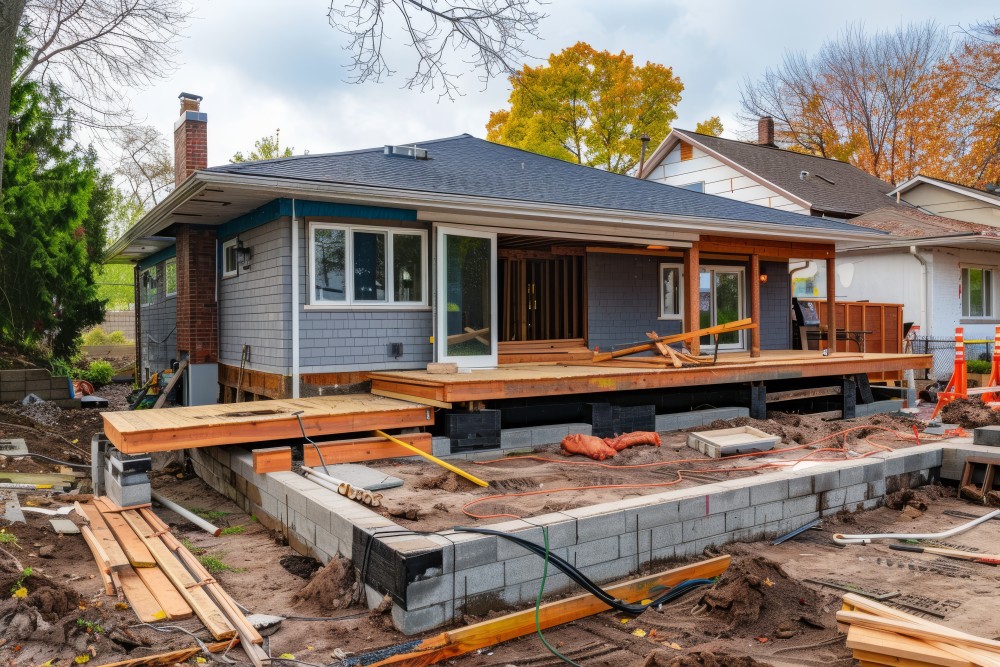1. Define Your Project Goals
Understand the Purpose
- Functional Needs: Determine the primary function of the renovation. Are you looking to improve energy efficiency, increase space, enhance aesthetics, or upgrade functionality?
- Style and Aesthetics: Decide on the style and aesthetic you want to achieve. This will guide your material choices to ensure a cohesive look.
Set a Budget
- Cost Considerations: Establish a clear budget for your project. Consider both the initial cost of materials and the long-term value they offer.
- Quality vs. Cost: Balance your desire for high-quality materials with your budget constraints. Sometimes investing a bit more upfront can save you money in the long run.
2. Research Material Options
Durability and Longevity
- Wear and Tear: Choose materials that can withstand the wear and tear of daily use, especially in high-traffic areas like kitchens and bathrooms.
- Climate Suitability: Consider the climate in your area. For example, materials that withstand humidity and moisture are essential for bathrooms and kitchens.
Maintenance Requirements
- Ease of Maintenance: Select materials that are easy to clean and maintain. For example, quartz countertops are low-maintenance compared to natural stone options.
- Long-Term Care: Understand the long-term maintenance requirements of each material, such as sealing, polishing, or refinishing.
Environmental Impact
- Sustainable Options: Look for eco-friendly materials that have a minimal environmental impact. Bamboo, reclaimed wood, and recycled glass are popular sustainable choices.
- Energy Efficiency: Consider materials that enhance energy efficiency, such as insulated windows, energy-efficient doors, and reflective roofing materials.
Join HICP Homeowner’s Alliance
Connect with experts, get special discounts and enjoy member benefits
3. Evaluate Material Samples
Get Physical Samples
- Texture and Color: Obtain physical samples of materials to see and feel their texture, color, and quality in person.
- Lighting Effects: View samples under different lighting conditions to understand how they will look in your home.
Test Durability
- Scratch and Stain Resistance: Test samples for scratch and stain resistance to ensure they can withstand everyday use.
- Water Resistance: For materials used in kitchens and bathrooms, test their water resistance and durability in wet conditions.
4. Compare Brands and Suppliers
Brand Reputation
- Trusted Brands: Choose materials from reputable brands known for quality and reliability. Research reviews and ratings from other homeowners.
- Manufacturer Warranties: Check if the manufacturer offers warranties on their products. A good warranty can provide peace of mind and protect your investment.
Supplier Reliability
- Local Suppliers: Consider purchasing materials from local suppliers who have a good reputation and can provide reliable delivery and support.
- Bulk Purchasing: If you need a large quantity of materials, look for suppliers who offer bulk discounts or wholesale prices.
5. Consult with Professionals
Hire Experts
- Contractors and Designers: Consult with contractors, interior designers, and architects who can provide expert advice on material choices and their suitability for your project.
- Specialized Knowledge: Professionals can recommend materials that you may not have considered and ensure that your selections are practical and functional.
Ask for Recommendations
- Previous Projects: Ask for recommendations based on similar projects. Professionals can share their experiences and insights on the performance of different materials.
- Networking: Use professional networks to find reliable suppliers and brands that offer high-quality materials.
6. Consider Long-Term Value
Resale Value
- Market Appeal: Choose materials that will enhance the resale value of your home. High-quality, durable, and stylish materials are attractive to potential buyers.
- Trendy vs. Timeless: Balance current design trends with timeless materials that will not go out of style quickly.
Energy Savings
- Insulation and Efficiency: Invest in materials that improve your home’s insulation and energy efficiency, such as energy-efficient windows, doors, and HVAC systems.
- Utility Bills: Energy-efficient materials can reduce your utility bills, providing long-term savings.
7. Avoid Common Pitfalls
Overlooking Functionality
- Practical Use: Ensure the materials you choose are suitable for the intended use. For example, avoid using porous materials in areas prone to moisture.
- Safety Considerations: Consider safety aspects, such as slip resistance for flooring in wet areas and fire resistance for kitchen surfaces.
Ignoring Compatibility
- Coherent Design: Ensure that all chosen materials work well together and complement the overall design of your home.
- Structural Compatibility: Verify that the materials are suitable for your home’s structure and do not cause any issues with weight or installation.
Conclusion
Choosing the right renovation materials is a critical step in ensuring the success of your home improvement project. By defining your project goals, researching material options, evaluating samples, consulting with professionals, and considering long-term value, you can make informed decisions that enhance the functionality, aesthetics, and value of your home. Avoid common pitfalls by balancing style with practicality and ensuring all materials are compatible with your home’s structure and design. With careful planning and thoughtful selection, your renovation project will be a rewarding investment that you can enjoy for years to come.



















